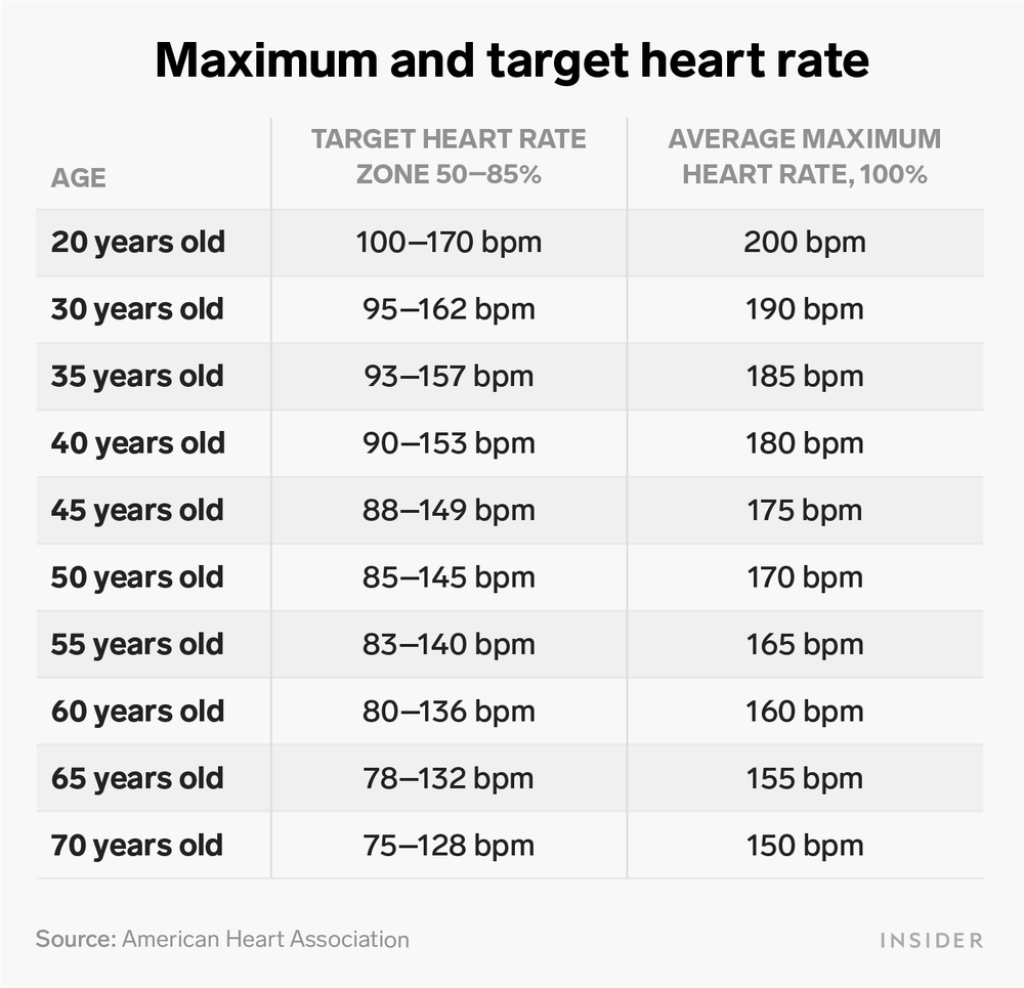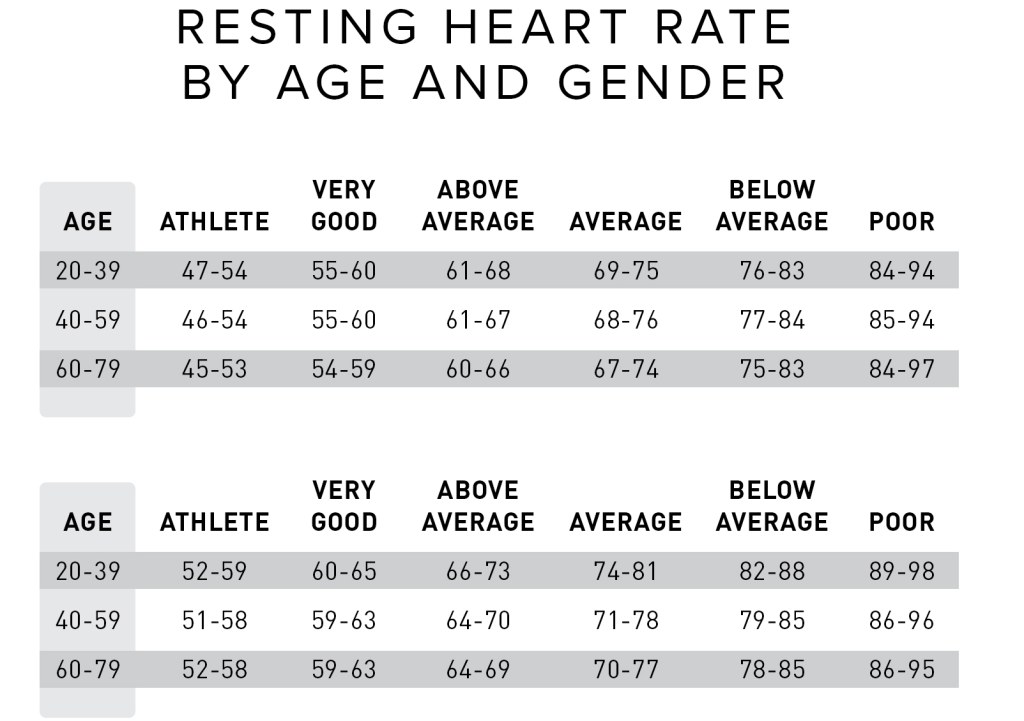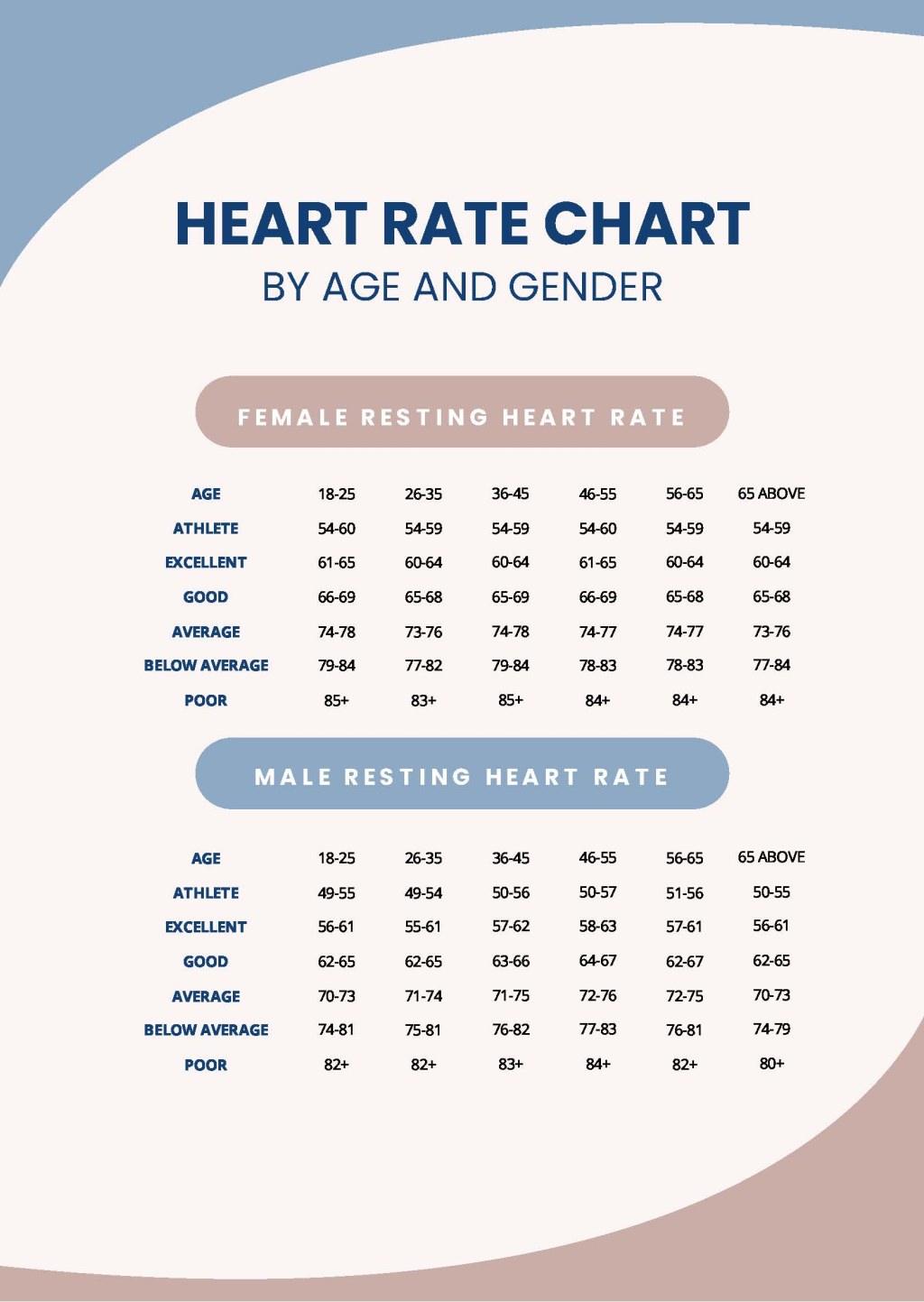Unlock Optimal Health: Discover Your Excellent Resting Heart Rate By Age
Excellent Resting Heart Rate by Age
Introduction
Welcome, Smart Peoples! In this article, we will delve into the topic of excellent resting heart rate by age. Understanding your resting heart rate is crucial as it can be an indicator of your overall cardiovascular health. By knowing what is considered excellent for your age group, you can take the necessary steps to maintain a healthy heart. So, let’s explore the different age groups and their corresponding excellent resting heart rates!
3 Picture Gallery: Unlock Optimal Health: Discover Your Excellent Resting Heart Rate By Age



Table: Resting Heart Rate by Age
Age Group
Excellent Resting Heart Rate
20-29 years
60-100 bpm

Image Source: insider.com
30-39 years
60-100 bpm
40-49 years
60-100 bpm
50-59 years
60-100 bpm
60+ years
60-100 bpm
What is Excellent Resting Heart Rate?

Image Source: whoop.com
Excellent resting heart rate refers to the number of heartbeats per minute when a person is at rest. It is an important measure of cardiovascular fitness and health. A lower resting heart rate generally indicates a healthier heart, as it signifies that the heart is efficient in pumping blood throughout the body.
Who Should Monitor Their Resting Heart Rate?
Monitoring resting heart rate is beneficial for everyone, regardless of age or fitness level. However, individuals who are physically active or have existing cardiovascular conditions can especially benefit from tracking their resting heart rate regularly.
When and How Should Resting Heart Rate be Measured?

Image Source: template.net
Resting heart rate should be measured in the morning, after a good night’s sleep and before any physical activity. It is best to measure it while lying down or sitting in a relaxed position. To get an accurate reading, it is recommended to measure resting heart rate for several days and calculate the average.
Where Can I Find My Resting Heart Rate?
You can easily find your resting heart rate by using a digital fitness tracker, such as a smartwatch or fitness band. These devices often have built-in heart rate monitors that provide real-time data. Alternatively, you can manually measure your pulse by placing two fingers on your wrist or neck and counting the beats for 60 seconds.
Why is Resting Heart Rate Important?
Resting heart rate is important because it can indicate your overall cardiovascular health. A lower resting heart rate is often associated with better heart function and fitness. Additionally, monitoring changes in resting heart rate over time can help detect any abnormalities or changes that may require medical attention.
Advantages and Disadvantages of Resting Heart Rate Monitoring
Advantages:
Early detection of potential heart problems
Ability to track improvements in cardiovascular fitness
Helps in determining appropriate exercise intensity
Provides motivation to maintain a healthy lifestyle
May help in preventing heart disease
Disadvantages:
May cause unnecessary worry or anxiety if misunderstood
Relies on accurate measurement techniques
Does not provide a complete picture of heart health
Can be influenced by factors such as stress or illness
Should not replace professional medical advice
Frequently Asked Questions (FAQ)
1. Is a lower resting heart rate always better?
Answer: While a lower resting heart rate is generally considered better, it is important to note that individual variations exist. Factors such as age, fitness level, and underlying health conditions can influence the optimal range for resting heart rate.
2. Can medications affect resting heart rate?
Answer: Yes, certain medications like beta-blockers can lower resting heart rate. It is important to consult with a healthcare professional if you are concerned about the effects of medication on your heart rate.
3. Can high resting heart rate be a sign of a serious health condition?
Answer: A consistently high resting heart rate may indicate an underlying health condition, such as anemia or thyroid problems. It is advisable to consult with a healthcare professional if you have concerns about your resting heart rate.
4. Can lifestyle choices affect resting heart rate?
Answer: Yes, factors such as smoking, excessive alcohol consumption, poor diet, and lack of physical activity can contribute to an elevated resting heart rate. Adopting a healthy lifestyle can help improve heart health.
5. How can I lower my resting heart rate?
Answer: Regular physical exercise, a balanced diet, stress management, and adequate sleep can help lower resting heart rate. However, it is important to consult with a healthcare professional for personalized advice.
Conclusion
In conclusion, knowing what constitutes an excellent resting heart rate by age is essential for maintaining good cardiovascular health. Monitoring your resting heart rate can provide valuable insights into your overall fitness level and help detect potential heart problems. Remember to consult with a healthcare professional for personalized guidance and always prioritize your heart health.
Final Remarks
Disclaimer: The information provided in this article is for educational purposes only and should not be substituted for professional medical advice. Always consult with a healthcare professional before making any changes to your exercise routine or lifestyle.
This post topic: Excellent

![Ways to Deliver Excellent Customer Service [Examples]](https://hobbyt.biz/wp-content/uploads/2023/07/ways-to-deliver-excellent-customer-service-examples-150x150.png)
